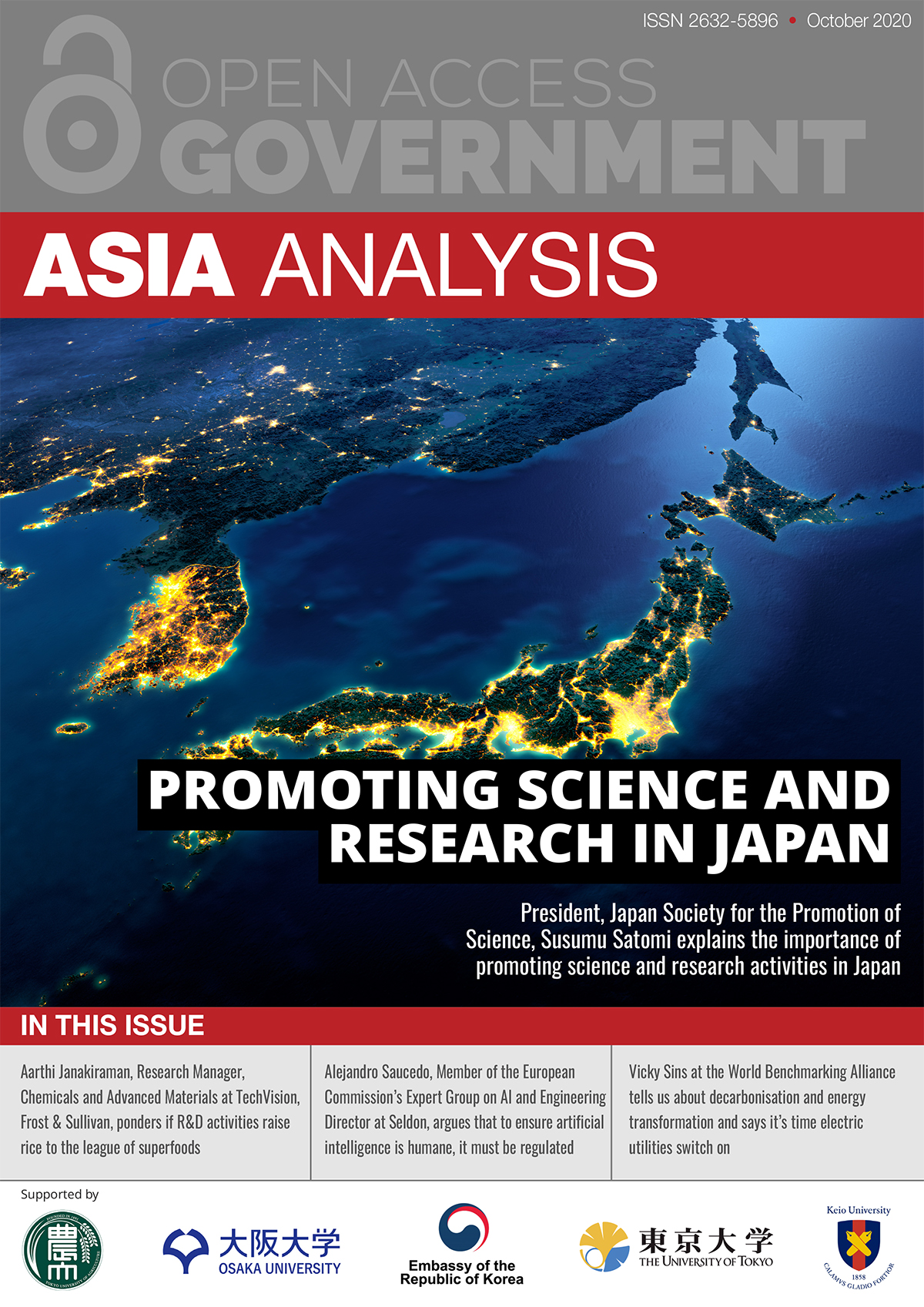In October 2020’s Asia Analysis, we hear from the President of the Japan Society for the Promotion of Science (JSPS), Susumu Satomi, who explains the importance of promoting research activities in the country
Since its founding in 1932, the JSPS has strongly supported “scientific research driven by researchers’ own free ideas”, an approach that generates new knowledge.
As many countries increase their participation in science and technology, Japan has noticed a decrease in their own. In an additional comment, we chart the priorities for the country to remain a world leader in science and technology policy. We learn about what the Ministry of Education, Culture, Sports, Science and Technology set out to do in this vein.
Elsewhere, Vicky Sins at the World Benchmarking Alliance tells us about decarbonisation and energy transformation and says it’s time electric utilities switch on. With electricity demand likely to increase by almost 80% before 2050, decarbonisation of the electric utilities sector is vital in facilitating change, Vicky argues.
Experts in the field populate our agriculture section, including a most insightful piece by Aarthi Janakiraman at Frost & Sullivan, who ponders if R&D activities can raise rice to the league of superfoods. Aarthi draws our attention to the fact that The United Nations declared 2020 as the International Year of Plant Health “to raise awareness about how plant protection can help end hunger, reduce poverty, conserve the environment and promote economic development.”
Aarthi also highlights the success story of Riceberry, the result of the collaborative efforts of Kasetsart University’s Rice Science Centre in Thailand and the research team there. It is, therefore, fitting that Professor Dr Apichart Vanavichit, at the Rice Science Center, explains in detail about how DNA technology can create a high-quality Thai Jasmine Rice.
I hope you will stay with us for more insightful editions in 2021 and beyond.


